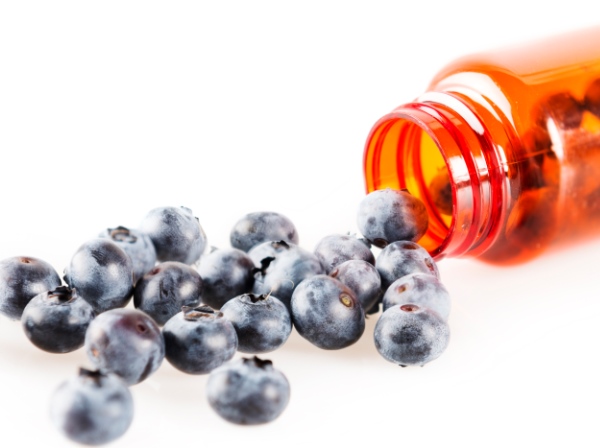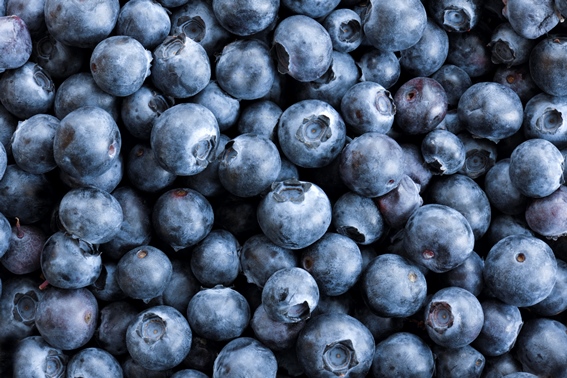
What really causes ageing free-radicals, and what are the benefits (if any) of antioxidants in 2017?
The cosmetic industry doesn’t hide its desire to emulate Kim Kardashian. No need to understand ageing, just abrogate it with the surgeon’s scalpel and an injection of wrinkle killer and/or filler. Ageing from the inside out is a little more complex. The results are a little less perceptible and not immediate. We can’t just chop off flesh, inject stuff and achieve an instant makeover. Benefits are incremental, not always easy to discern, and the science isn’t superficial. We need to know what causes ageing in order to prevent it. So do we? And if we do, who really cares?
In order to answer that we have to understand why we’ve become so obsessed with staying young. My grandfather lamented growing older, but he never took potions to prolong his youthfulness. Why have we become a culture obsessed with imbibing any cocktail and having almost any surgery that might preserve our capacity to perform like a teenager while looking like Kanye’s wife, air-brushed?
Let’s be clear: narcissism defined our existence long before the arrival of Facebook and the iPhone. Selfies and really loud conversations on mobile phones in public places have simply amplified our proclivity for making self-obsession central to our existence. The world revolves around us and we pride ourselves on being masters of our galaxy. The universe bends to our will and airplanes, motor vehicles and electricity have allowed us to extend our reach, stay awake for as long as we want, and essentially thumb our noses at any restrictions the natural world may throw our way. The surgeon’s knife and Botox has enabled us to achieve the illusion of everlasting youthful beauty, fueled as much by social media as by our desire to procreate in a way that perpetuates the best and most vibrant of our genetic repertory. But ageing is nature’s ultimate curve ball, a harsh reality check that reminds us that as much as we have conquered the world, the final joke is on us as primordial forces relentlessly choke our life force, propelling us into decrepitude and death.
This doesn’t mean we’re going to roll over and die without putting up a fight. Preventing ageing is our ultimate challenge, our attempt to defy that most primitive reminder that we aren’t in fact controllers of our destiny, and that when it comes to determining who’s boss, nature has the final most shocking say in the form of ending our existence and imprint on the world in real time. Just around the middle of the decade when I was born, Watson and Crick, two intrepid scientists and deserved Nobel prize winners, were painstakingly decoding the intricate apparatus that is our DNA, the essential programming that governs how cells are structured and operate. It was no coincidence that as the blueprint for our life force was being elucidated, another scientist was unearthing the impact of chemicals manufactured in our cells that have the capacity to unravel DNA, setting in motion a damaging cascade of events that would compromise our functionality so severely that ageing and finally death would be the irretrievable consequence. And so, as we discovered how cells thrive, what was also germinated was the ‘free radical theory of ageing’ or the explanation for how we slide ultimately into dysfunction and senescence.
Free radicals are one of the great paradoxes of the natural world in which just about everything that has the power to energise us also has the capacity to terminate our existence. We take in oxygen when we breathe in order to provide our cells with vital fuel so they can make the energy we need to function and survive. At the same time that we use oxygen to manufacture energy, our cells also spawn a slew of potentially noxious chemicals, called free radicals, that are essentially oxygen deconstructed without its full complement of particles known as electrons ceded in this fundamental biochemical reaction. What these errant oxygen offshoots can do is decimate our DNA, which can sabotage our cells’ most life-giving operation, accelerating ageing as a result. Nature, fully aware that free radicals are capable of immense destruction, has a fail-safe mechanism in the form of a compendium of antioxidants, cellular safeguards designed to neutralise free radicals at every turn, so that any potential danger is averted before irreparable damage is set in motion.
The problem with this finely tuned armoury is that it becomes rusty and less effective as we age. Perhaps nature did not intend for us to hang around for that long; consequently, as we get older our defences weaken and free radicals start to achieve an ascendancy. Like a punch-drunk boxer in the final rounds of a title fight we find ourselves on the ropes as free radicals relentlessly pound away at the solar plexus and epicentre of our existence, pummeling our cells into submission and defeat.

But there is a Rocky in this saga in the guise of a team of antioxidant contenders. As it turns out, we don’t have to rely exclusively on the team of in-built antioxidants nature has provided us which become increasingly incapacitated as we age. Antioxidants are also found in fruit and vegetables, and increasingly in a bevy of highly empowered substances that have the power to knock off free radicals where our bodies have failed.
I attended my first anti-ageing conference in Las Vegas in the late 1990s, soon after the anti-ageing movement was emerging. Even then, one of the standouts was the concerted attempt by vitamin companies to demonstrate that their signature antioxidant was more powerful than any other with the unique capacity to quell the most truculent of free radicals. The story remains the same to this day. Go to any scientific website and you will still find research which posits that all we need to do in order to stem the destructive effects that free radicals have on our cells as we age is adequately abort their activity.
While vitamin companies were busy out-hyping each other about the Herculean capacities of their super-antioxidants to corral noxious free radicals, research was beginning to surface which questioned the benefits of supplementing with antioxidants. A number of reviews which either looked at the application of single antioxidants like vitamins C, E, vitamin A and beta-carotene, or combinations of these, found that they not only failed to prevent heart disease and cancer, but in some cases increased the risk of dying earlier! If these were such powerfully impactful agents, why were they failing to do their job and, even worse, escalating death rates?
Seigfried Hekimi, a neurobiologist at Mcgill University in Canada, probably one of the most pre-eminent research institutions in the world on par with Harvard and Oxford, has attempted to reconcile these rather alarming findings with research done on worms and mice. He and his team found that when free radicals increased in these creatures, proteins and genes were activated which actually promoted longevity. Rather than cause destruction, free radicals were being utilised as sensors, priming these organisms to conserve their resources by igniting critical processes which facilitated living longer.
In case this leads to a huge amount of confusion, it has to be explained that free radicals are still capable of harming our cells by unravelling our DNA and derailing the activity of those parts of cells which furnish us with energy. This is their dark side, and usually happens when they multiply beyond our cells’ antioxidant reserve to curb this sort of devastation.
What Siegfried and Hekimi and his team have brought to our attention is another universe where free radicals have the smarts to elicit a whole range of other events which we might be able to use our advantage. Free radicals can encourage the eradication of damaged cells, like disposing of garbage that can become putrid when not jettisoned appropriately. As much as free radicals can decimate DNA, surprisingly they also have the potential to enable DNA repair.
It has to be pointed out that Hekimi’s research focused on worms and mice, and scientists have yet to clarify if these prototypes can be applied to humans. For those of us who are religiously devoted to taking antioxidants based on the advocacy of the anti-ageing movement and the research which suggests this practice might help to halt and even reverse ageing, this new evidence is unsettling to say the least. For obvious reasons vitamin companies have been somewhat muted in their enthusiasm for embracing Hekimi’s revelations, if they’ve even acknowledged them at all. Marketing a small amount of weed killer which has been inserted into a capsule to fire up the health-promoting benefits of free radicals would not be an easy sell.
Future articles will expand on these new revelations clarifying whether taking antioxidants and other associated new supplements is indeed wise or not.
- Dr Michael Elstein is an author and physician at The Eternal Health Medical Centre specialising in anti-ageing medicine, nutrition and dietary therapy. Contact www.eternalhealth.org
One thought on “Radically different ”
Leave a Reply
You must be logged in to post a comment.


“What Siegfried and Hekimi and his team have brought to our attention is another universe where free radicals have the smarts to elicit a whole range of other events which we might be able to use our advantage. Free radicals can encourage the eradication of damaged cells, like disposing of garbage that can become putrid when not jettisoned appropriately.”
Amazing. Finally my theory that binge drinking helps to kill off all the weak brain cells, and leave only the fittest, is being recognised by the greater scientific community.